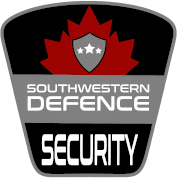Child Custody Cases
Child custody cases are a commonplace aftermath of a divorce or parental fatalities. Inwhich a divorce bears varying degrees of custody. Whereas the fatality of both parents (or the sole custody holder), bears a concern of delegating proper guardianship.
The first degree is when a single parent has sole (full) custody. This is whom makes all decisions that may affect the child's or children's lives, whereas the other parent must make requests to have decisions made. The second would be joint custody, wherein both parents are equally responsible for making the decisions. Should there be a disagreement on an issue, the parents may consider mediation (or litigation if necessary). The other two degrees would be "shared custody" which is a variation of "joint custody". Or, "split" custody wherein different children are in the custody of separate parents.
Sometimes, proving that a child may be at risk with one particular parent over the other; can be extraordinarily difficult in some cases. It is not feasible to simply claim the parent in question has committed certain acts or has a certain lifestyle would could be potentially harmful to the child(ren).
Obvious cases are when one parent has an extensive criminal record and/or had been charged for child abuse. This parent has minimal to zero chances in upholding custody - and this would require little to no effort on the opposing attorney’s behalf.
In more precarious cases, when both parents claim the other to be unsuitable for custody; can become a "murky-water" scenario, wherein the courts would have a difficult time discerning which parent would be most reliable - or even whether a guardian/foster-care would be more appropriate.
Typically, it takes strong evidence such as: substance abuse, criminal record, severe mental health problems, or a number of witnesses - suggesting this person is incapable of taking care of children; in order to actually remove any parental rights/custody from either parent (or both).
Evidence for Legal Purposes
The number one concern of any mediation, court case, police investigation, or other; is having the complete health and safety of the children, in consideration. It is mandated by law, that in all scenarios, the children are of primary concern and the system will do anything, to reasonably ensure the children are kept completely safe. Eventhough, such is not always the result, as particular scenarios or unfortunate circumstances could result in the worsening of conditions or the lessening of safety. Ultimately, the goal is to provide the best possible conditions for health and safety.
How does a Private Investigator play a crucial role in all of this? Well, they are paid to legally collect the evidence in a law-abiding, reasonable, discretionary, and a timely manner. They must be licensed by the ministry, must undergo extensive training, and they generally are experienced in fields of the same or similar jobs.
Collecting photo, video, audio, written (documents obtained from the target), or personal encounters (a licensed PI being witness to). This is what Private Investigations are comprised of. In other cases, personal records such as bank records, health records, criminal records, or other; may be obtained in order to provide further evidence. Though, this particular method, is supposed to be done through the courts ((warrants/orders) conducted by government agents or peace officers), or the person in question has somehow provided consent for access to his/her personal records.
Medium of Surveillance
Generally, PI's will conduct a discrete or covert pursuit/surveillance of a particular target. Essentially tracking their movements, habits, visitations, social interactions, etc. Documenting all relevant occurences, along the way. Sometimes this is conducted from a short distance. Other times this is conducted from a far as possible at an undetectable distance. On certain occasions, they may directly interact with the target, although this usually creates a complicated or precarious scenario.
They are well equipped with an arsenal of special recording devices, which are designed and intended to record any form of information at a distance or in proximity. Once they have collected enough data to analyze the severity/accuracy/validity of the case; they will then bring said analysis to the client. Should the client be satisfied with the case-evidence provided, then it is usually turned over to the client once payment has been made.
There are rare circumstances wherein specific pieces of the evidence collected, cannot be upheld in court. This may be due to a number of factors, one of which, would be revealing information about persons unrelated to the case.
Why Hire a PI?
Hiring a private investigator may seem like a potentially costly endeavour, however there are several benefits to this route versus others. Such as employing local police or doing it yourself. The reason why it may be better to hire a PI than any other means, is that unless you are able to somehow prove that lives are at risk or in a dire situation; the local police department likely won't have the time to undertake case or evenstill would have no such obligations to do so.
Doing it yourself not only could be dangerous, but it could also easily become illegal. There are reasons that a license is required, in order to perform a "private investigation". You cannot simply covertly pursue someone, as that actually may be considered stalking - which is a chargeable offense. The main underlying legal obligation being to municipal, provincial, and federal privacy laws.
Choosing the path of hiring a Private Investigator, could not only increase your chances of a successful custody case - whilst also acquiring evidence you may not otherwise be lawfully able to acquire - it may also provide you with an insight on instances/occurrences/interactions you were not made aware of previously.
